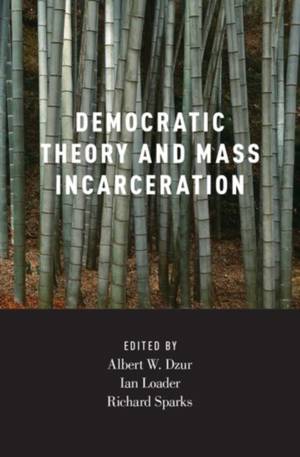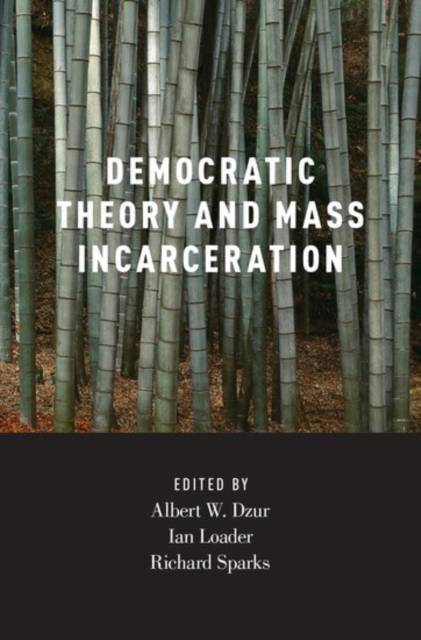
- Retrait gratuit dans votre magasin Club
- 7.000.000 titres dans notre catalogue
- Payer en toute sécurité
- Toujours un magasin près de chez vous
- Retrait gratuit dans votre magasin Club
- 7.000.0000 titres dans notre catalogue
- Payer en toute sécurité
- Toujours un magasin près de chez vous
Democratic Theory and Mass Incarceration
58,45 €
+ 116 points
Description
The United States leads the world in incarceration, and the United Kingdom is persistently one of the European countries with the highest per capita rates of imprisonment. Yet despite its increasing visibility as a social issue, mass incarceration - and its inconsistency with core democratic ideals - rarely surfaces in contemporary Anglo-American political theory. Democratic Theory and Mass Incarceration seeks to overcome this puzzling disconnect by deepening the dialogue between democratic theory and punishment policy. This collection of original essays initiates a multi-disciplinary discussion among philosophers, political theorists, and criminologists regarding ways in which contemporary democratic theory might begin to think beyond mass incarceration. Rather than viewing punishment as a natural reaction to crime and imprisonment as a sensible outgrowth of this reaction, the volume argues that crime and punishment are institutions that reveal unmet demands for public oversight and democratic influence. Chapters explore theoretical paths towards de-carceration and alternatives to prison, suggest ways in which democratic theory can strengthen recent reform movements, and offer creative alternatives to mass incarceration. Democratic Theory and Mass Incarceration offers guideposts for critical thinking about incarceration, examining ways to rebuild crime control institutions and create a healthier, more just society.
Spécifications
Parties prenantes
- Editeur:
Contenu
- Nombre de pages :
- 358
- Langue:
- Anglais
- Collection :
Caractéristiques
- EAN:
- 9780190243098
- Date de parution :
- 24-10-16
- Format:
- Livre relié
- Format numérique:
- Genaaid
- Dimensions :
- 157 mm x 236 mm
- Poids :
- 612 g

Les avis
Nous publions uniquement les avis qui respectent les conditions requises. Consultez nos conditions pour les avis.





